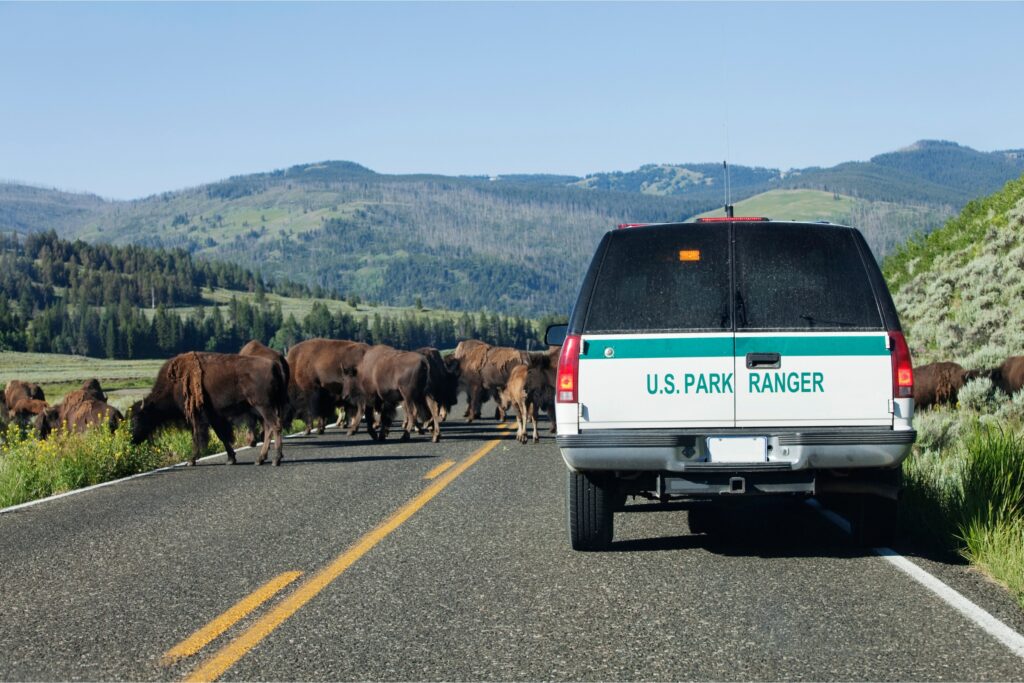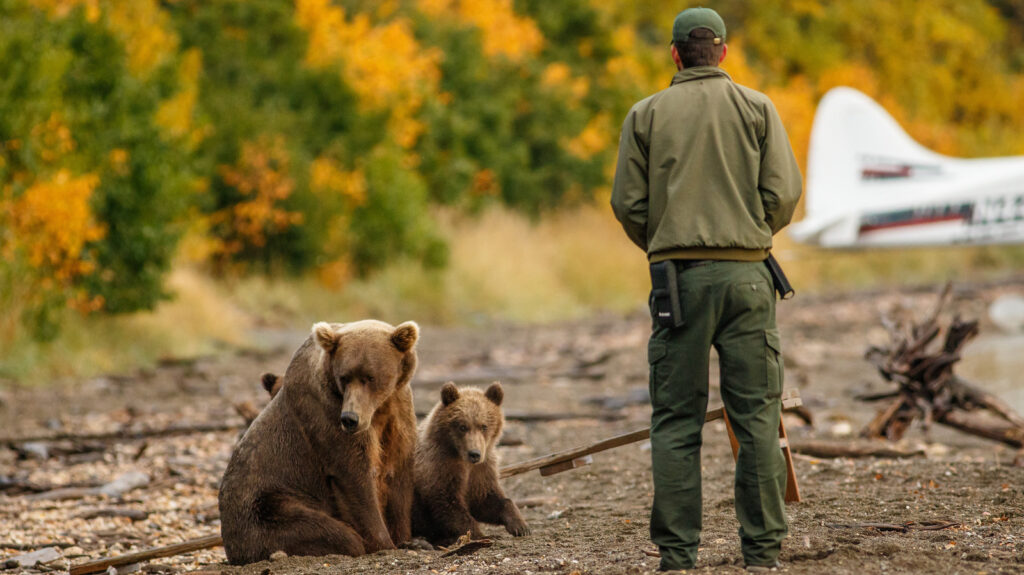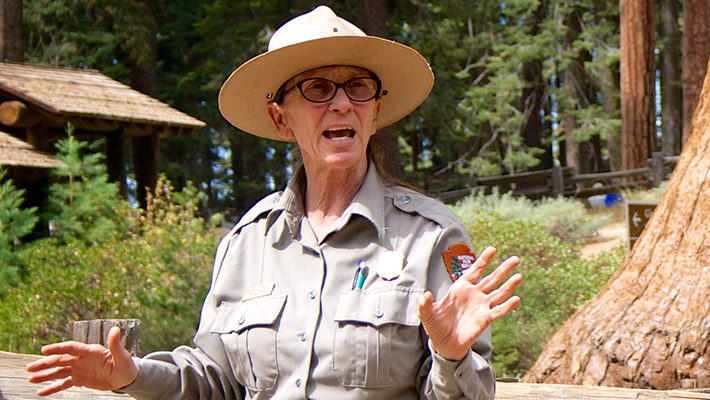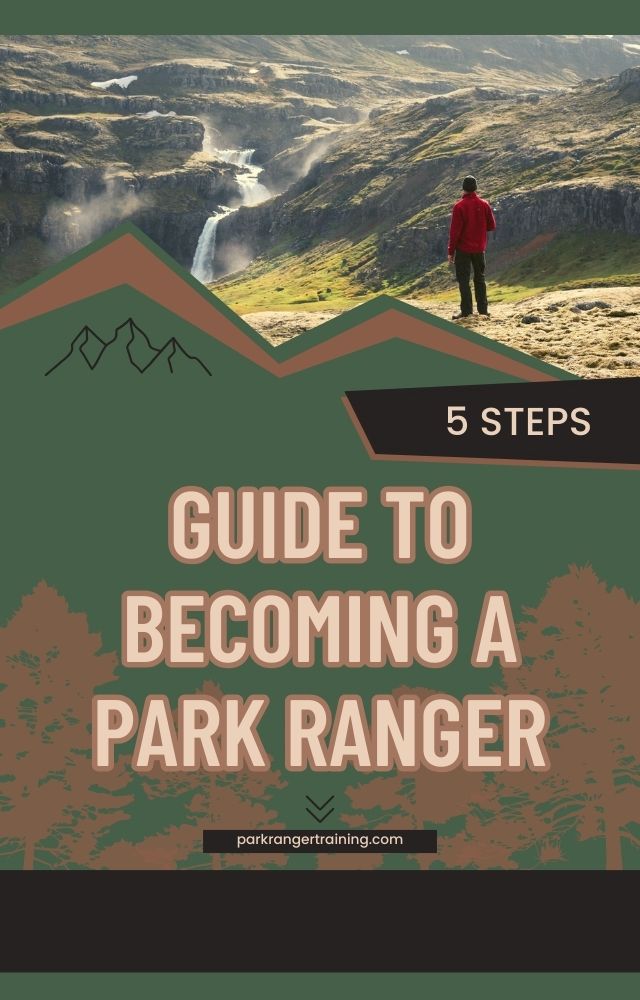If you’re drawn to a life amid the beauty of the wilderness and have a passion for conservation, becoming a park ranger could be your dream job. Embarking on this career path means you’ll play a crucial role in protecting natural resources and educating the public. The average salary for park rangers varies by location and experience, but the reward of working in nature is a constant. As you explore this field, you’ll encounter frequently asked questions about qualifications, day-to-day tasks, and career progression, all of which we’ll address in this guide.
Beginning your journey requires an understanding of the job’s multifaceted nature. From environmental conservation to public safety, the responsibilities are diverse. You’ll need to meet educational requirements and gain practical experience to stand out in the competitive job market. This comprehensive guide will navigate you through each step, ensuring you’re well-prepared to pursue a career as a park ranger.
Understanding the Role of a Park Ranger
At the heart of a park ranger’s mission is preserving the natural beauty of our protected lands, but the role extends beyond conservation. A game warden, a specialized type of ranger, focuses on enforcing game and wildlife laws, ensuring the balance of ecosystems and the wellbeing of wildlife populations.
Core Responsibilities and Daily Duties
As a park ranger, you’ll interact with park visitors, ensuring they have a safe and informative experience. Law enforcement park rangers take on additional duties, including investigating violations, performing search and rescue missions, and maintaining public safety within park boundaries.
The Work Environment: Where Park Rangers Serve
While some park rangers patrol vast wilderness areas as game wardens, others serve in varied terrains, from mountainous regions to coastal preserves. Each environment presents unique challenges and learning opportunities for rangers committed to conservation and public service.
• National Parks and Their Unique Challenges
In national parks, rangers confront challenges like large-scale conservation efforts and visitor management. Working closely with the parks department, they help maintain the delicate balance between public access and the preservation of our nation’s natural treasures.
• The Role of State Park Rangers
State park rangers ensure the safety and enjoyment of visitors on a daily basis. They are key in managing natural habitats, providing educational programs, and maintaining trails and facilities to enhance the visitor experience.
• Opportunities in County and Local Parks
County parks offer rangers the chance to engage with local communities, fostering a connection to nature close to home. The parks department at this level often requires rangers to wear multiple hats, from managing resources to coordinating events and activities.

Meeting the Educational Requirements
The path to becoming a park ranger typically begins with achieving a bachelor’s degree. Aspiring rangers should maintain a clean record, as a history with illegal drugs or domestic violence can disqualify a candidate.
Park Ranger High School Pathways
High school students interested in becoming park rangers can start early by exploring volunteer opportunities in municipal parks. These experiences provide a glimpse into ranger duties and help cultivate a connection to the natural world.
Advanced Education for Aspiring Park Rangers
For those aiming to become a game warden, advanced education in wildlife management and law enforcement is essential. This specialized training prepares candidates for the complex responsibilities they’ll face in the field.
• Relevant Bachelor’s Degrees
Aspiring park rangers benefit from academic majors relevant to the field, such as resource management, natural resource conservation, earth sciences, park and recreation management, wildlife and forestry conservation, and wildlife management. These degrees provide a strong foundation for a ranger’s varied responsibilities.
• Postgraduate Opportunities and Specializations
Postgraduate studies offer aspiring park rangers the opportunity to specialize in areas like ecology, environmental policy, or natural resource management. Advanced degrees can lead to higher-level positions within the parks system.
Preparing for the Job Market
As you prepare to enter the job market, focus on building a resume that highlights your dedication to conservation and public service. Tailor your experiences to reflect the skills and knowledge that park agencies value in a candidate.
Volunteering and Gaining Practical Experience
Volunteering at a seasonal park provides aspiring park rangers with volunteer opportunities to gain valuable insight into the field. Whether it’s through seasonal maintenance work or assisting with natural and cultural resource protection, these experiences complement a college degree and pave the way for entry-level seasonal positions.
Navigating Park Ranger Job Openings
When navigating park ranger job openings, it’s important to consider the path of a game warden if you’re interested in law enforcement and wildlife conservation. These positions require specific skills and may have additional application requirements.
Pre-Employment Processes and Background Checks
To embark on the employment process of becoming a park ranger, you’ll undergo thorough background checks. These are critical to ensuring the safety and integrity of the parks and the public. Expect to have your personal history scrutinized, including any past criminal activity. Felony convictions, drug offenses, and certain misdemeanors may disqualify you. Additionally, you’ll likely face a psychological evaluation to assess your suitability for the role, and a drug screening is a standard part of the pre-employment process. Be prepared to present a clean driver’s license and proof of being a permanent resident or citizen.

Training and Certification Needs
As you prepare to protect our parks, training programs are essential. They provide the foundational knowledge and skills needed for a successful career. From understanding conservation efforts to public safety, these programs are designed to cover every aspect of the job.
Park Ranger Recruit Training Programs
Beginning your journey, you’ll likely attend academy training, which is a comprehensive introduction to the role of a park ranger. Under the guidance of experienced park superintendents, recruits learn about the natural environment, enforcement protocols, and the myriad of tasks they will manage. These programs are pivotal in shaping a knowledgeable and effective ranger.
Specialized Certifications and Law Enforcement Training
For those aspiring to become law enforcement officers within the parks, specialized law enforcement training is a requirement. This training equips you with the skills to enforce rules and regulations, manage public safety, and respond to emergencies. You’ll learn investigative techniques, how to handle evidence, and receive certifications that validate your authority to act in law enforcement capacities.
• The Importance of Physical Fitness Assessment
Physical fitness is not just a job requirement; it’s a key component of a park ranger’s duties. You must pass fitness assessments that measure strength, endurance, and agility. These tests ensure you can perform rigorous tasks, from hiking challenging terrain to responding swiftly in emergencies. Maintaining a high level of fitness is vital for your safety and the well-being of park visitors.
• Additional Skills for Career Advancement
Securing a bachelor’s degree in a relevant field like natural resource management can open doors for career growth. This education provides a deeper understanding of ecology and the skills to manage complex environmental issues, positioning you for advanced roles and specialized areas within park services.
Exploring Specializations within the Field
Diverse ecosystems and public needs create various roles within park services. Whether you’re drawn to the educational aspects of park stewardship or the hands-on approach to conservation, there’s a niche for your passion and expertise.
Forest Ranger vs. Park Ranger: Understanding the Distinctions
Park rangers typically serve in state or national parks, focusing on visitor services, education, and park management. Forest rangers, on the other hand, work primarily in state and national forests, concentrating on forest management, fire prevention, and conservation efforts. Both roles play a crucial part in preserving the integrity of our parks and recreation areas, but their daily responsibilities and work environments may differ.
Interpretive Rangers and Educational Roles
Interpretive rangers are educators at heart, often found in state or national parks. They use their expertise to enrich visitor experiences, sharing the park’s history and ecological significance. These roles require a unique blend of knowledge, passion, and communication skills.
Law Enforcement and Protective Services in Parks
Law enforcement officers in parks not only ensure visitor safety but also protect the parks’ natural and historic resources. They enforce regulations, conduct patrols, and play a critical role in overall park management, maintaining the balance between conservation and public access.
Salary Expectations and Job Outlook
The career of a park ranger offers more than just an opportunity to work in stunning landscapes; it provides a sustainable livelihood with competitive salaries.
Average Salary Ranges for Park Rangers
The average salary for a park ranger varies based on location, experience, and the type of park. However, pursuing a career in this field can offer a fulfilling balance between a love for the outdoors and financial stability.
The Future of Park Ranger Employment Opportunities
The horizon for aspiring park rangers is promising. With a college degree, entry-level seasonal positions can help you gain valuable experience. Seasonal maintenance work or visitor services are common starting points, providing a glimpse into the dynamic world of park stewardship.

Furthering Your Career
Advancement and specialization await those who continually seek growth and learning opportunities.
Continuing Education and Professional Development
Delve deeper into resource management, earth sciences, wildlife biology, and outdoor recreation through ongoing education. These subjects not only enhance your expertise but also keep you abreast of the latest conservation strategies, ensuring that you remain an invaluable asset to the parks and the broader community.
Potential Career Paths Beyond Park Ranger
After gaining valuable experience in public lands, your career as a park ranger can lead to numerous opportunities. You might find yourself drawn to the educational aspects, working at nature centers or visitor centers, or you might decide to take on a more research-oriented role. Either path you choose, the skills you’ve honed in resource management, public interaction, and conservation will serve as a solid foundation for your next professional adventure.
• Becoming a Wildlife Conservationist
If you’re passionate about protecting wildlife and their habitats, transitioning to a wildlife conservationist role could be your calling. In this position, you’ll apply your park ranger experience to broader conservation projects, often collaborating with scientists and policy makers. You’ll have the chance to influence environmental policies, conduct critical research, and work towards preserving biodiversity for future generations.
• Transitioning to a Game Warden Role
For those with a law enforcement background, becoming a game warden is a natural progression. Game wardens focus on enforcing hunting, fishing, and boating laws, as well as protecting wildlife from poachers. Your park ranger expertise in law enforcement and resource management will be invaluable as you take on the responsibility of safeguarding wildlife and ensuring that recreational activities comply with state and federal regulations.
Engaging with the Park Ranger Community
Staying connected with other professionals in your field is vital for growth and learning. Engaging with the park ranger community allows you to exchange ideas, stay informed about the latest conservation techniques, and build relationships that could lead to collaborative projects or new job opportunities.
Networking with Fellow Rangers and Environmental Professionals
Networking is key in any career, but it’s especially important in the close-knit world of environmental conservation. Attend local meet-ups, join online forums, and participate in workshops to meet fellow rangers and professionals. These connections can provide mentorship, help you stay abreast of industry trends, and open doors to new possibilities within the realm of environmental stewardship.
Joining Associations and Participating in Conferences
Joining professional associations is an excellent way to deepen your engagement with the park ranger community. Associations offer a platform for advocacy, professional development, and networking. Additionally, attending conferences provides valuable insights into emerging trends and best practices in park management and conservation, allowing you to continually refine your skills and knowledge.
The Application and Interview Process
Embarking on the application process for a park ranger position requires careful preparation. You’ll need to navigate through various stages, from submitting paperwork to attending interviews, each step bringing you closer to your goal of protecting and preserving our natural heritage.
Crafting a Park Ranger-Focused Resume
Your resume should highlight your experience in natural resource management, law enforcement, and public service. Be sure to include any certifications or specialized training that relate to the park ranger role. Detailing your experience with environmental education programs or emergency response will showcase your versatility and commitment to the field.
Acing the Park Ranger Interview: Tips and Strategies
During the interview, it’s essential to demonstrate your knowledge of conservation issues and park operations. Share specific examples from your background that show your problem-solving skills and your ability to work with a team. Remember to express your passion for the outdoors and commitment to public service, as these are core values that employers look for in a park ranger candidate.
Final Thoughts on How to Become a Park Ranger
Embarking on a career as a park ranger is more than a job—it’s a commitment to preserving the natural splendor and cultural heritage of our nation’s parklands. Whether you’re drawn to the rugged wilderness of Yellowstone National Park or the educational opportunities within national historic sites, the path to becoming an NPS park ranger is rich with academic and experiential learning. Academic majors relevant to this field, such as wildlife and forestry, park and recreation management, and wildlife management, provide a strong foundation. Yet, prospective park rangers should anticipate additional requirements like rigorous academy training, a thorough background investigation, and a comprehensive medical exam to ensure readiness for the multifaceted demands of the role.
For those with a passion for the great outdoors, resource protection, and community engagement, park ranger positions offer a unique blend of challenges and rewards. Seasonal park roles can serve as an excellent entry point, allowing you to gain invaluable experience in diverse settings across the United States. Whether you’re transitioning from the armed forces or seeking a career change, the journey involves continuous learning and professional development. Remember, your dedication to park management and the protection of our natural and historical treasures shapes the future of conservation and the experiences of millions who visit these enchanting spaces each year.





